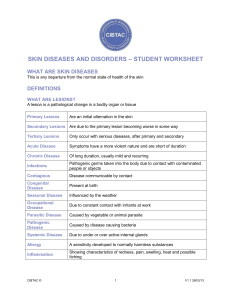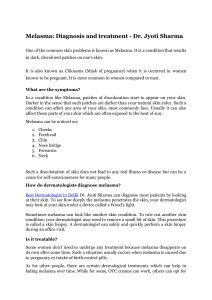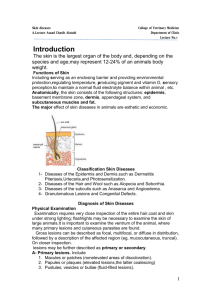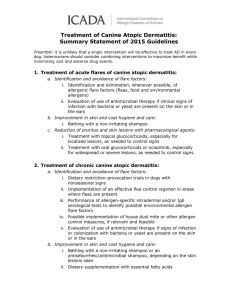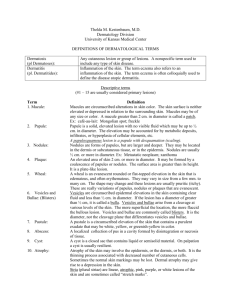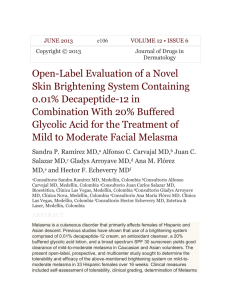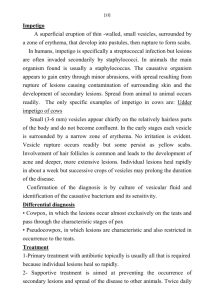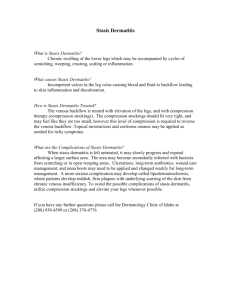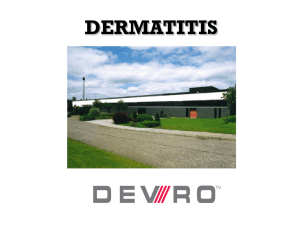Cosmetic Laser Business
advertisement
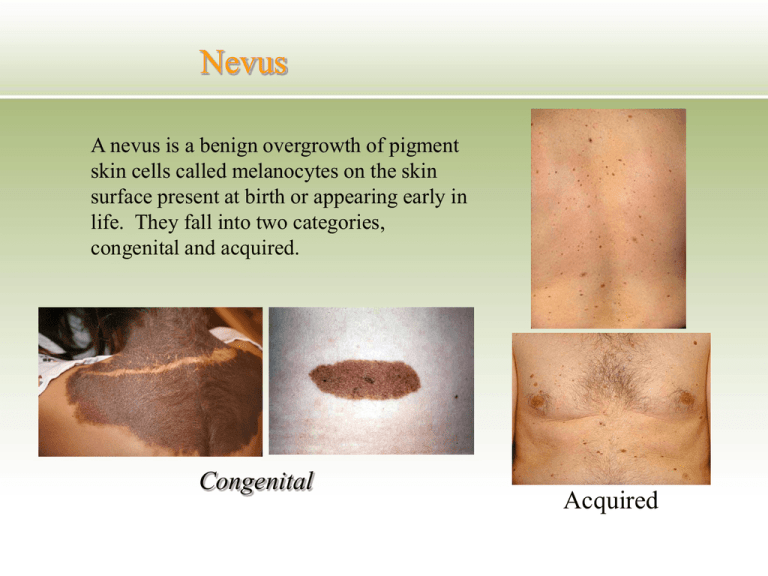
Nevus A nevus is a benign overgrowth of pigment skin cells called melanocytes on the skin surface present at birth or appearing early in life. They fall into two categories, congenital and acquired. Acquired Congenital Acquired Melasma Blemish Melasma (also known the mask of pregnancy when present in pregnant women) is a tan or dark facial skin discoloration. Although it can affect anyone, melasma is particularly common in women, especially pregnant women and those who are taking oral contraceptives or hormone replacement therapy medications. The symptoms of melasma are dark, irregular patches commonly found on the upper cheek, nose, lips, and forehead. These patches often develop gradually over time. Melasma does not cause any other symptoms beyond the cosmetic discoloration Varicose and Spider Veins Some of the lasers used for hair will be effective on blue leg veins. Typically in the .6 to 3mm size range. More effective on spider veins Varicose veins are deeper and won’t respond to laser hair removal wavelengths. Things the laser won’t treat…etc. Stork Bites/Salmon Patches Stork bite hemangioma. These lesions are very common-approximately 30% of the population has them. Stork bites are common vascular lesions of the newborn. They consist of one or more pale red patches, most often seen in the midline on the forehead, eyelids, tip of the nose, upper lip, and at the hairline on the back of the neck. They fade with pressure, but when the pressure is removed, the reddish appearance returns. Stork bites clear on their own over a period of months and are gone by 18 months-except for those on the back of the neck. These may persist for years, but are generally covered by hair. Port Wine Stains Pre-op 3 months PD tx Pre-op 5 txs PD laser A port wine stain, is a birthmark consisting of malformed, dilated blood vessels in the skin. It is not a type of hemangioma. Anyone can be born with a port wine stain. They occur in 1 in 200 to 400 babies. They are not contagious They are permanent Can’t be prevented Contact Dermatitis Contact dermatitis is a skin reaction that occurs after exposure to a substance that either irritates the skin or triggers an allergic response. If the skin condition is caused by contact with an irritating or harsh substance, that is primary irritant contact dermatitis. If the skin condition is an allergic reaction to a substance, that is allergic contact dermatitis. The symptoms and treatment of both types of contact dermatitis are similar. Contact Dermatitis Neomycin Active herpes lesions Orofacial infection These infections may appear on the lips, nose or in surrounding areas. The sores may appear to be either weeping or dry, and may resemble a pimple, insect bite, or large chickenpox lesion. Lesions typically heal after a few days to a week (or more), but this varies among individuals. Plaque Psoriasis Skin lesions are red at the base and covered by silvery scales. It can be itchy and painful. Psoriasis is autoimmune in origin, and is not contagious. Shingles/ Herpes Zoster Reactivation of varicella zoster virus, leading to a crop of painful blisters. It occurs very rarely in children and adults, but its incidence is high in the elderly (over 60), as well as in any age group of immunocompromised patients. Skin Tags Small benign tumors that form primarily in areas where the skin forms creases, such as the neck, armpits, and groin. They also occur on the face, usually on the eyelids. They range in size from two to five millimeters, although larger ones have been seen. Vitiligo Patchy loss of skin pigmentation due to an auto-immune attack by the body's own immune system on skin melanocytes. It frequently begins in late adulthood, with patches of unpigmented skin appearing on extremities. The patches may grow or remain constant in size. Occasional small areas may repigment as they are recolonized by melanocytes. Laser hair removal may aggravate this condition. Questions? Free consultations available
